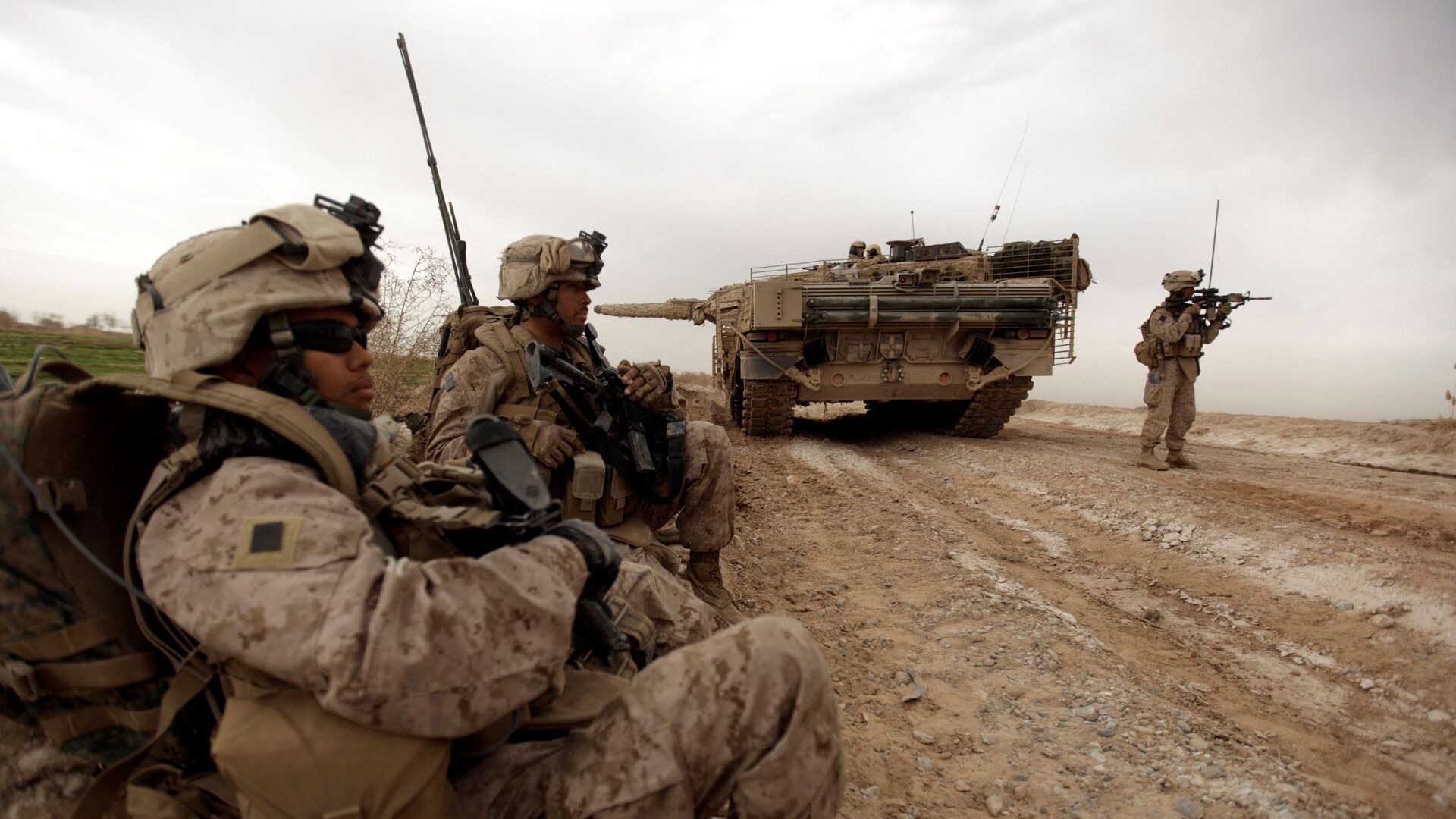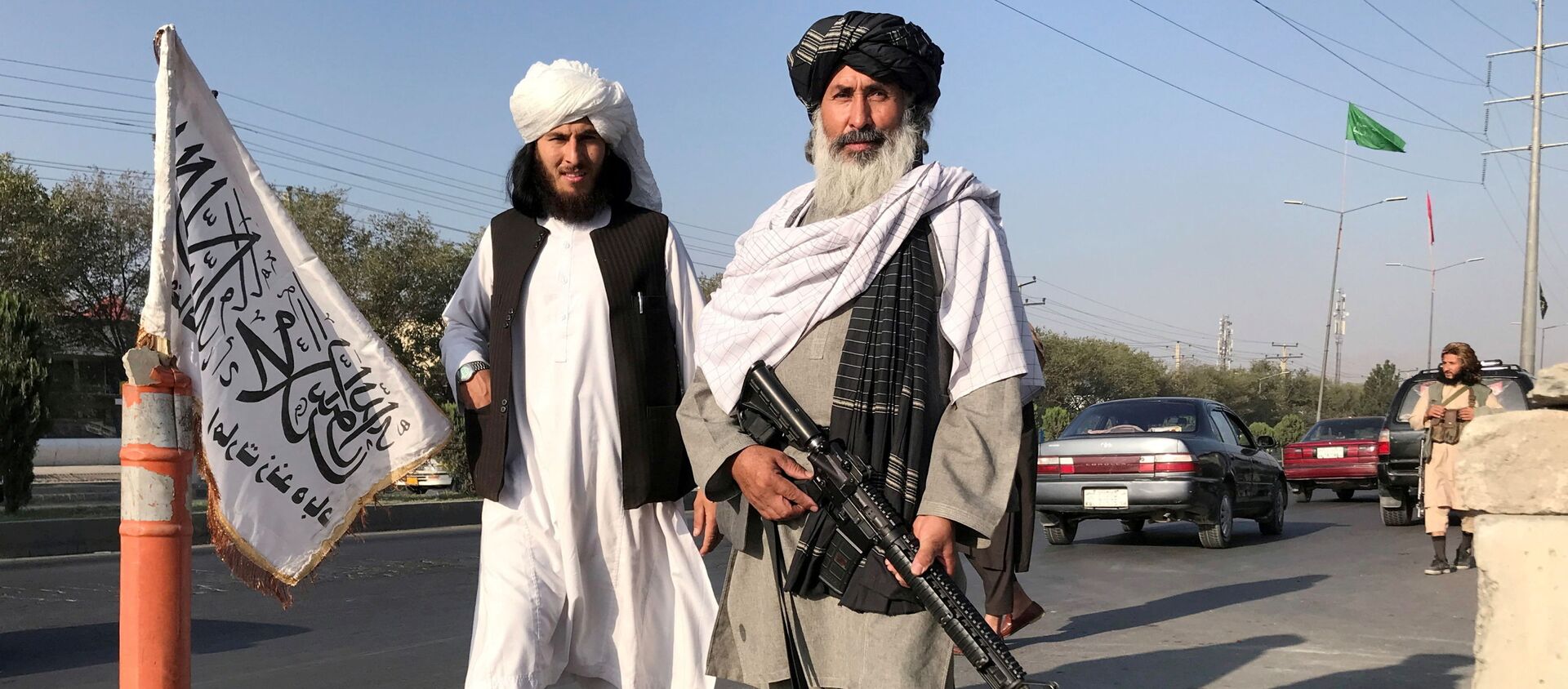Denmark Secretly Pays UK Off to Receive Its Afghan Interpreters
07:29 GMT 09.09.2021 (Updated: 07:51 GMT 09.09.2021)

© AFP 2023 / PATRICK BAZ
Subscribe
The scheme of “outsourcing” legal and humanitarian responsibility for interpreters who helped Denmark during the country's decades-long involvement in Afghanistan and even wore Danish uniforms has raised eyebrows and been met with criticism.
A total of 23 Afghan interpreters who helped Denmark during the US-led mission in Afghanistan have been granted residence in the UK after Copenhagen paid, the newspaper Berlingske reported after obtaining confirmation from the Danish Defence Ministry.
The amount paid has not been revealed but according to Berlingske, it has been calculated according to what it cost the British to assess the 23 interpreters' documents and evacuate them, and what it would cost the UK to integrate them, including social benefits for five years.
Although the interpreters were assisting Denmark in Afghanistan, they were formally employed by the UK. According to Berlingske, however, they wore Danish uniform, and some had their salaries paid in cash by Danish officials.
The list includes 12 interpreters who had first been refused an entry visa to Denmark and 11 interpreters who wished to come to the UK.
The list includes 12 interpreters who had first been refused an entry visa to Denmark and 11 interpreters who wished to come to the UK.
A total of 195 interpreters assisted the Danish forces during the war in Afghanistan. Until June this year, merely five Afghan interpreters had been granted asylum in Denmark out of 139 applications.
The scheme of “outsourcing” humanitarian responsibility has caused surprise.
“I haven't seen a similar scheme before, neither in my work in the UN and the EU nor as a lawyer in Denmark”, Poul Hauch Fenger, lawyer and specialist in asylum law and former employee of the UN High Commissioner for Human Rights, told Berlingske. “Denmark pays itself out of a legal responsibility for the interpreters, as we pay an amount to send them to the UK, which thus takes over the humanitarian responsibility that would otherwise have been ours”.
“We have in an incredible way disgraced ourselves in the sight of our allies,” Sine Plambech, senior researcher at the Danish Institute for International Studies (DIIS) mused. “Put simply, we have paid ourselves off to avoid giving our local interpreters in Afghanistan asylum,” she said.
Eva Flyvholm, defence spokesperson for the Red-Green Alliance and member of the Foreign Policy Board, was also critical of the scheme.
“I believe the entire system of outsourcing the responsibility of interpreters to Britain testifies that we are not ready to take it ourselves when going it war,” she said, adding that the situation was “a mess”.
According to a 2013 agreement, the interpreters were given the opportunity to request Danish support, provided that they could prove that they were specifically threatened or in danger because of their work for Denmark. A new agreement was reached on 11 August this year, when the Taliban* were about to re-claim power in Afghanistan. However, the most recent agreement only covered locally employed Afghans from within the past two years.

26 August 2021, 05:41 GMT
Since the fall of Afghanistan's capital, Kabul, on 15 August, Denmark has evacuated around 1,000 people from the war-torn country, including more than 600 local staff and their families.
The Danish engagement in Afghanistan dates back to 2001, with the first Danish soldiers deployed in 2002, peaking at 760 men. Overall, the Danish mission has cost millions of kronor, suffering 43 casualties and more than 210 injuries.
* The Taliban is a terrorist organisation banned in Russia and other countries.
